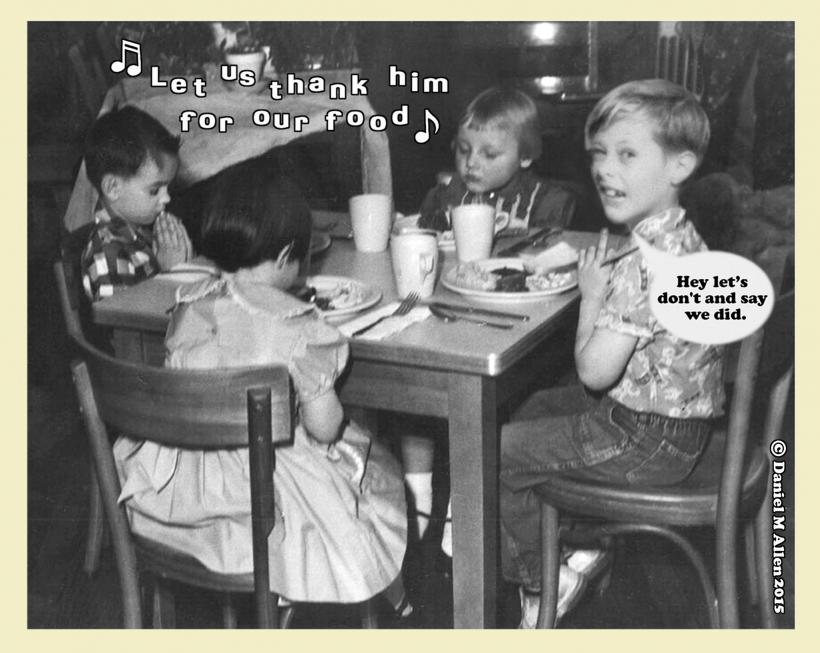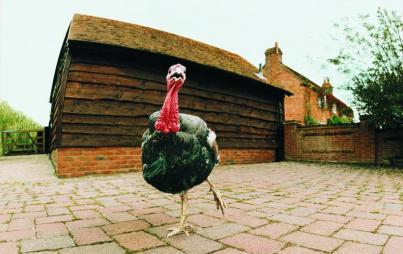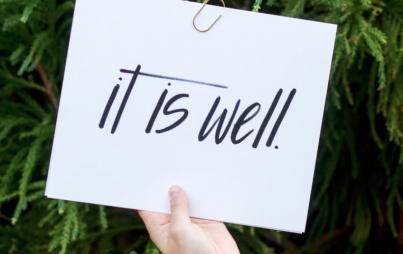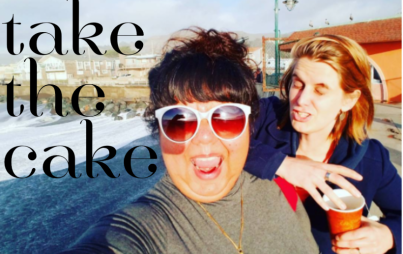
Photo credit: Daniel Allen
Thanksgiving was always my favorite holiday. My preference had a great deal to do with the fact that I enjoy socially acceptable opportunities to eat excessive volumes of pie and mashed potatoes, but it was also the only holiday that my entire extended family could agree on.
As long as everybody present could grit his or her teeth through someone else’s lengthy prayer at the beginning of the meal—and as long as we could artfully steer the conversation away from current events of any kind—the Christian relatives, the Jewish relatives, and the secular relatives could all get behind the idea of gratitude. Whose ideology doesn’t mesh with giving thanks, after all? It was also an occasion that didn’t require anybody to buy one another items they didn’t need, want, or use, or to feign enthusiasm over gifts of thermal underwear or hideous throw pillows. What wasn’t to love?
As the only person in the extended family who both loves cooking huge spreads and whose culinary skills are strong enough to ensure that nobody would end up with food poisoning from an underdone drumstick, the meal was typically up to me. Even on years when I didn’t host the feast at home, I cooked Thanksgiving dinner in my relatives’ kitchens. I brined turkeys in baptisms of salty goodness, dried fresh herbs from my own kitchen garden for the dressing, and made some of the flakiest pastry crust you can imagine. My enthusiasm for the holiday kept me so buoyed that I didn’t mind my loved ones hoovering down my carefully prepared feast in 20 minutes after I’d spent a full day cooking. That is, I didn’t think I minded.
Yet I noticed that I’d start looking forward to the day after Thanksgiving, when I could relax a little and enjoy a plate of reheated food rather than scuttling around the kitchen, making sure that everyone else had what they needed. I thought of the calm after the Thursday storm as my own private holiday. I started greedily squirreling away bits and bites of food that I could enjoy later, and finding myself frustrated and resentful when I found that everybody had already eaten the last of the cranberry sauce. Geez, you couldn’t save a decent-sized piece of pie for me? or I seriously have to do the dishes now, too? aren’t exactly the kinds of thoughts I should’ve been entertaining on a day devoted to thankfulness. When had I started looking at my own loved ones like they were a plague of locust descending on my table?
I couldn’t ignore the fact that my Thanksgiving had turned into an internal marathon of petty grumbling—the exact opposite of its intended purpose. So finally, I quit: I stopped hosting the holiday at my house, and instead of inviting a barrage of people over for face-stuffing, I turned Thanksgiving into a quiet day at home—just me and my partner—and yes, plenty of pie and mashed potatoes.
I like to flatter myself that the family misses my festive cranberries and my artery-clogging maple cake, but in truth, no one really minded my dropping out of the holiday traditions. Instead of a massive get-together, we called one another. We sent cards. We enjoyed restful and peaceful days that didn’t leave us stuffed to the gills with food but instead helped us re-enter daily life with renewed perspective.
Over the past few years, I’ve noticed that a celebration-free Thanksgiving means that I have both more time to appreciate the good things in my life and also more good things to appreciate: less work in the kitchen means more rest. Less chaos and bustle means more peace. Less physical exertion means better health. Choosing to opt out of the trappings and expectations of the holiday gave me the freedom to truly celebrate.







